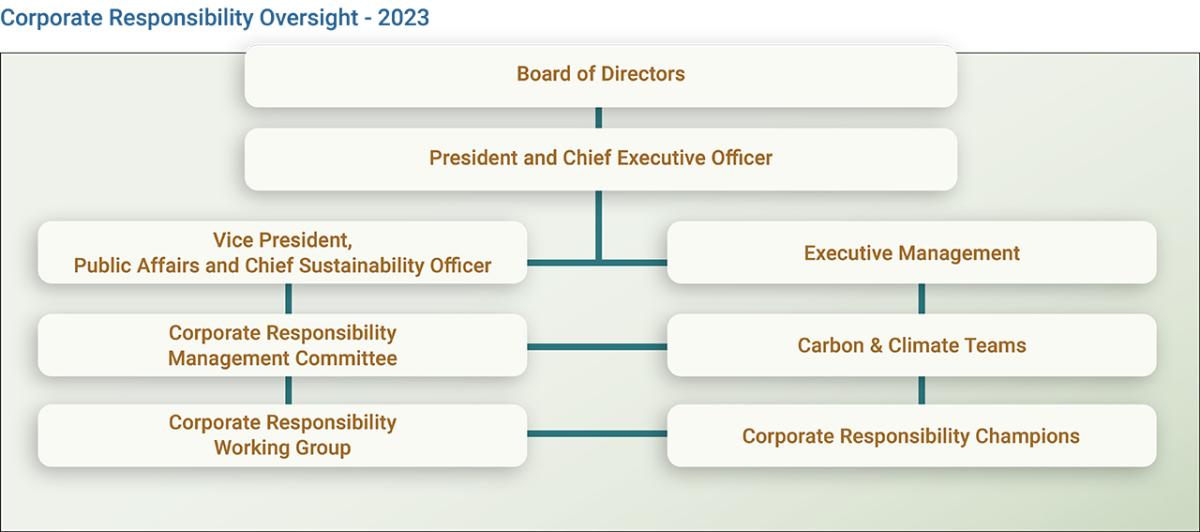Corporate Responsibility Governance

The Vice President, Public Affairs and Chief Sustainability Officer provides senior leadership on PotlatchDeltic’s corporate responsibility reporting and initiatives. Updates are provided to the Board of Directors at least twice a year regarding corporate responsibility strategies, initiatives, and analysis, including climate risks and opportunities. The Board oversees PotlatchDeltic’s environmental management, social responsibility, health and safety, and corporate governance policies and practices.
The Vice President, Public Affairs and Chief Sustainability Officer regularly provides information to and leads discussion with the Chief Executive Officer, Chief Financial Officer, and management regarding the continuous improvement of our corporate responsibility strategic development.
A Corporate Responsibility Management Committee consisting of management across business units and corporate functions meets twice a year. The committee deliberates medium and long-term corporate responsibility strategies, addresses concerns and opportunities, evaluates disclosures, and fosters continuous improvement.
A Corporate Responsibility Working Group meets several times a year and drives the corporate responsibility strategies, data collection, analysis, systems, and goals. Experts from the Corporate Responsibility Working Group lead the greenhouse gas and carbon sequestration and storage analysis, the climate risks and opportunities analysis and the materiality assessment process. The Corporate Responsibility Working Group includes a wide breadth of in-house experts including representatives from forest management, biodiversity, wood products environmental management, public affairs, and sustainability.
The Corporate Responsibility Working Group works closely with Team Members across organization functions and geographies to support the development of corporate responsibility programs and initiatives. Day-to-day ownership and implementation of our forests, planet, people, and performance strategies and initiatives reside at the business operation and function level with oversight by environmental, safety, human resources, and public policy managers. Carbon and Climate teams have been established across the organization to evaluate opportunities for GHG reduction initiatives and to establish and track related targets and goals. Corporate responsibility champions often lead efforts towards new initiatives and continuous improvement.
Corporate responsibility programs are integrated into existing environmental management and safety systems, supported through annual internal and external audits, regional and divisional management reviews, safety team processes, setting of annual goals and objectives, annual training, and capital budgeting plans. Audit findings, stakeholder feedback, site inspection results, and hazard reporting are all reviewed for trends as part of continual improvement that also helps refine our corporate responsibility strategy.
Environmental management and corporate responsibility risks and opportunities, including climate-related issues, are coordinated within our annual Enterprise Risk Management framework. Change management procedures are in place to ensure that proposed changes and capital projects are evaluated for their potential corporate responsibility impacts as part of the approval process. Once identified, these impacts are mitigated or managed to ensure alignment with our corporate responsibility strategies. Employees participate in corporate responsibility training and reviews across business units. Corporate responsibility goals are included within our corporate and divisional non-financial goals, which support the determination of annual incentive awards to eligible Team Members. We also utilize the expertise of external research organizations like the National Council for Air and Stream Improvement (NCASI) for support of corporate responsibility initiatives.

